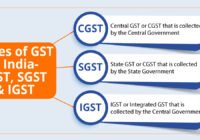New vs Old Tax Regime
New vs Old Tax Regime The new tax regime under the Income Tax Act in India, introduced in the Union Budget 2020-21, offers taxpayers an alternative tax structure with lower tax rates but without various deductions and exemptions available under the old tax regime. New tax regime: 1. Lower Tax Rates: The new tax regime… Read More »









